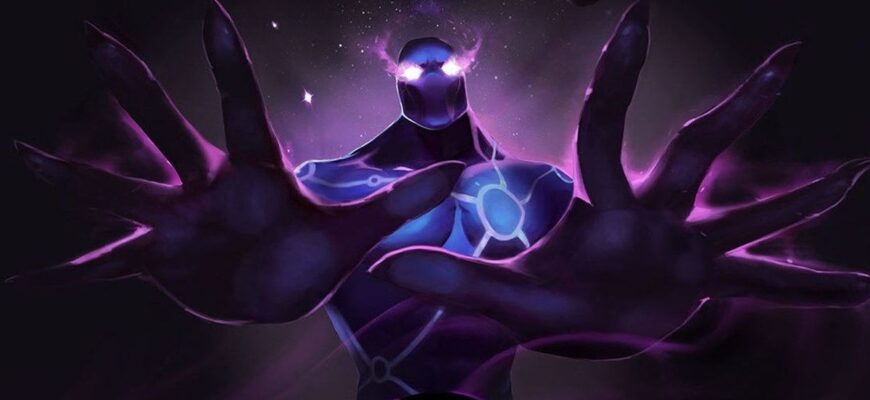In the high-stakes world of professional Dota 2, strategy is king. Every hero pick, every item choice, every calculated move is a piece of a grand, intricate chess match played out on a digital battlefield. Yet, according to Ammar “ATF” Assaf, the celebrated offlaner for Team Falcons, a subtle but significant change in the game`s ecosystem has ironically made this strategic dance both more unpredictable and, paradoxically, less exciting for the very players who perform it.
The Veil Over Practice: A New Era of Secrecy
The core of ATF`s concern lies with a recent alteration: the removal of public access to replays of professional practice matches, often referred to as “scrims.” Previously, teams could meticulously study their opponents` strategies, hero preferences, and innovative drafts developed in private sessions. This transparency, while potentially revealing, also fostered a dynamic environment where counters were honed, and creativity was often rewarded by clever adaptation.
Now, a veil of secrecy has descended. “It`s hilariously ironic,” ATF muses, “because while people might think we`re sandbagging or intentionally underperforming in regular seasons to peak at majors, the truth might be far simpler: we simply don`t know what to expect anymore. When you haven`t shown your hand for over a month, it certainly helps when the other side can`t peek at your notes either.”
The Pro`s Plight: Frustration in the Fog of War
For players like ATF, this lack of intel has transformed drafting from a calculated art into a frustrating guessing game. “As a player, it’s profoundly irritating,” he states. “You step into the draft, and you have no idea what’s coming. A hero you expect to be a support might suddenly appear as a carry. An Undying carry? A mid Dark Willow? These are not anomalies; they`re becoming regular occurrences, and you`re left bewildered, wondering `how?` and `why?`”
This unpredictability has a tangible impact on strategic depth. Drafting a strong counter-pick, a cornerstone of high-level Dota 2, becomes a risky gamble. “You want to slam a hard counter, but you can`t,” ATF explains. “Picking certain heroes becomes almost impossible. The game devolves into something incredibly frustrating and, surprisingly, very safe.”
The result? A noticeable decline in creative, aggressive play. When the landscape is uncertain, teams naturally gravitate towards established, less risky strategies. “Less creativity,” ATF concludes, “everything becomes standardized. It`s difficult to find anything truly engaging because you just don`t know what`s going to happen. And what often happens is, well, nothing particularly groundbreaking, because every professional game ends up being remarkably safe.”
The Spectator`s Paradox: Excitement vs. Reality
While frustrating for the pros, this `fog of war` might seem exciting to an outsider. The element of surprise, the unknown hero role, the sudden, unexpected pick – it all sounds like gripping drama. ATF acknowledges this possibility: “I don`t know how this looks from the spectator`s side. Probably exciting, because they don`t know what`s going on.”
However, he quickly debunks this illusion. The initial thrill of the unknown can quickly dissipate when the lack of information leads to conservative play. The audience is thrilled by the unknown, only to discover the unknown often results in the painfully familiar: safe, standard drafts that lead to less dynamic and memorable matches. It`s a paradox where unpredictability in hero roles ultimately stifles broader strategic innovation.
Team Falcons and the Riyadh Masters 2025: Navigating the New Meta
Despite these challenges, ATF`s Team Falcons have proven adept at navigating this enigmatic meta. Their recent performance at the Riyadh Masters 2025 stands as a testament to their adaptability. Having successfully defeated Tundra Esports, Team Falcons have secured their spot in the Grand Final, where they are set to face Team Spirit.
The Riyadh Masters 2025, hosted in Saudi Arabia from July 8th to 19th, showcases 16 top-tier teams battling for a substantial $3 million prize pool. As Falcons prepare for their ultimate showdown, their journey through this “safer” yet “irritating” meta will undoubtedly be a key talking point, raising questions about the future of competitive Dota 2 and whether a hidden hand truly makes for a better game.
Conclusion: A Meta in Flux
ATF`s insights offer a rare glimpse into the psychological and strategic toll of a seemingly minor game client change. While the intention behind removing practice replays might have been to foster more unique strategies or prevent meta stagnation, the current outcome, at least from a professional player`s perspective, appears to be a landscape where safety reigns supreme, creativity is stifled, and genuine surprise is often replaced by predictable caution. As the Riyadh Masters concludes, the larger question remains: is this the desirable evolution for competitive Dota 2? Only time, and perhaps a few more unconventional Undying carries, will tell.









